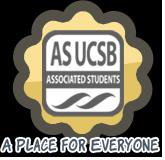Tim Fucci
AS Beat Reporter
The MultiCultural Center Council held a town hall meeting Monday, May 14 encouraging students to create an open dialogue in ways that the University of California Santa Barbara community can foster a more safe and inclusive environment for students to express their identity.
Entitled “Speak Up, Reach Out!,” as many as 50 students representing a diverse collection of student organization partook in the town hall meeting and tackled critical social concerns relevant to UCSB, including how to combat the use of hateful language, social consequences stemming from stereotypical “Gangsta” or “Pimp n’ Ho” themed parties, student alienation felt in the classroom and from other campus groups and cliques and safety on campus and in Isla Vista. Participants were given the opportunity to speak openly about these topics and in the end students broke out into issue-specific groups where they discussed tangible solutions to these threats against inclusivity and safety.
The event’s organizer and host Afiya Browne, a fourth-year black studies and sociology major, said the idea to hold such an event came after results from an MCC Council safe space survey to different organizations on campus revealed that many students shared similar concerns. During an exercise where Browne asked members of the audience to stand if they had ever felt endangered while in Isla Vista or believed they were excluded from participating in an organization or event because of their identity. Nearly every participant stood from their seats when these two questions were asked.
In the wake of the discovery of a decomposed body near Santa Catalina dormitory last week and reports of armed robberies and attempted sexual assaults, many students voiced concern over safety both on campus and in Isla Vista, and some pointed to a perceived divide between campus life and life in IV.
“When you venture off into IV, it’s a whole different jungle,” said fourth-year April Gubatina, adding that being a woman made her the subject of cat-calls and a potential victim to violent or sexual assault.
“As soon as you cross that tunnel you’re in a whole other world,” said one student who identified himself as Omar.
However, other students believed that the threat to student safety on campus was just as prevalent as it is in Isla Vista. Vanessa Barajas, a third-year sociology major, complained that at night the UCSB campus is empty and poorly lit. Many students, including Barajas, spoke on how
they were unaware of the location of blue call boxes to contact Campus Security Officers.
Some ideas that students brainstormed to address safety concerns included campaigns to educate students about the resources at their disposal, like better advertising the CSO hotline number, and holding events with the Isla Vista Foot Patrol to improve its relationship with students.
While safety and the Isla Vista Foot Patrol’s policing of students dominated the conversation, participants also spoke about inclusiveness in the classroom and whether they felt safe to freely express their point of view.
Some students hailed the classroom as one of the only true safe spaces on campus that promotes a diversity of opinions. However, other students, including fourth-year Brady Forrest, said that not all professors use language that is viewed as safe and inclusive, which often discourages students from expressing how they truly felt. Solutions that Forrest and other students suggested to address this issue included sensitivity and
inclusive language training for all faculty members.












Comments are closed.